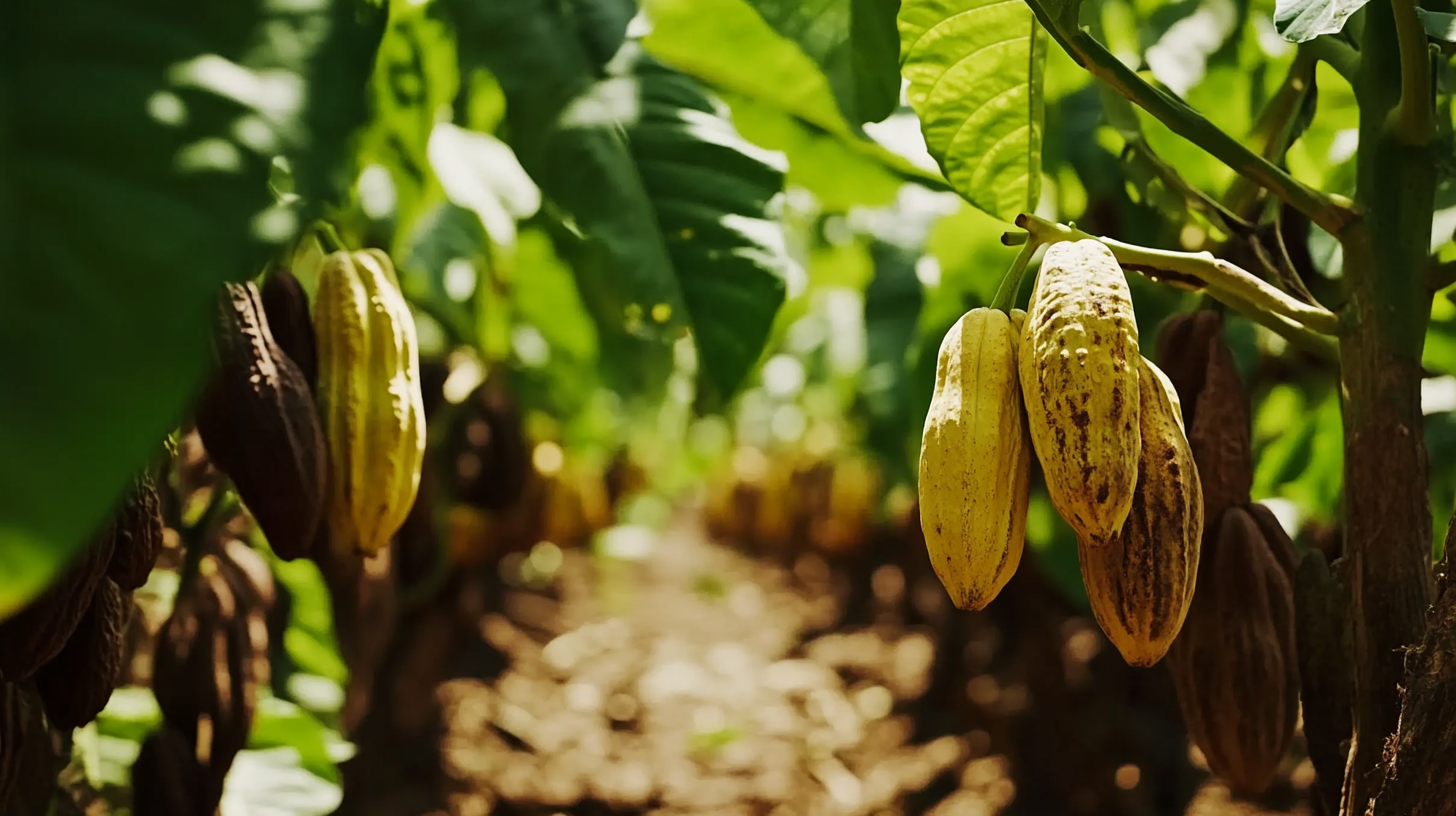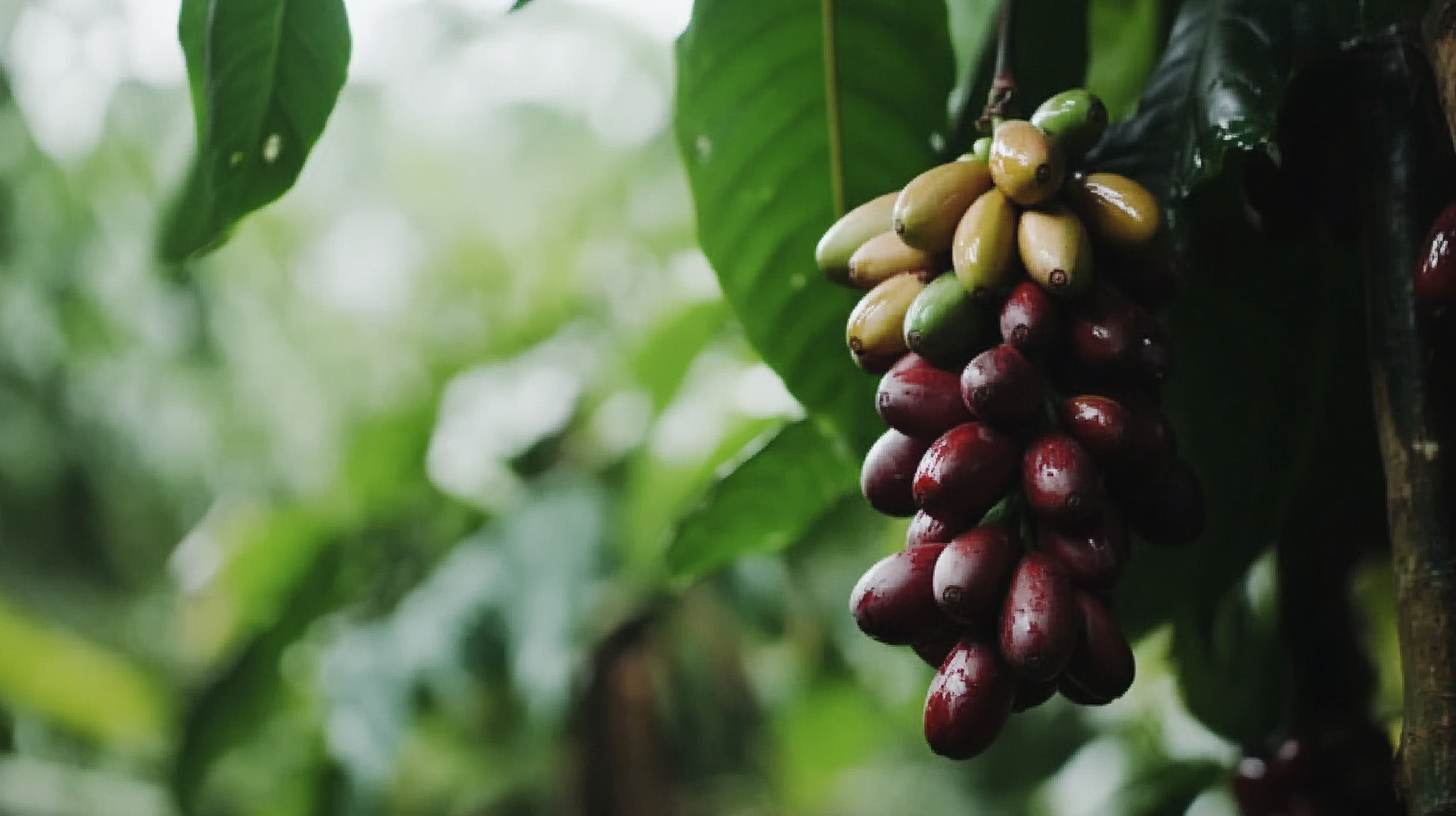Exploring the Innovations in Botanical Extracts for Sustainable Global Sourcing
As global demand for sustainable resources continues to surge, the spotlight is increasingly shining on botanical extracts. The market for these natural ingredients is projected to reach $60 billion by 2025, reflecting a compounded annual growth rate (CAGR) of approximately 8.5% from 2020. This significant growth is driven by the cosmetic, pharmaceutical, and food sectors, which are increasingly prioritizing natural and organic products. According to a recent report from Grand View Research, the rising consumer preference for clean-label products has underscored the importance of incorporating high-quality botanical extracts into formulations, ensuring they meet stringent sustainability criteria.
In addition to consumer preference, the regulatory landscape is evolving to favor sustainable practices. Reports indicate that over 70% of consumers are inclined to choose products that have clear sustainability credentials. This has led to an increase in innovations aimed at enhancing the extraction methods and sourcing of botanical extracts, making them not only more efficient but also environmentally responsible. Innovations such as supercritical CO2 extraction and advancements in biotechnological methods enable manufacturers to harness the full potential of plants while reducing waste and environmental impact. In this blog, we will explore the latest innovations in botanical extracts that not only align with market demands but also contribute to a sustainable future for global sourcing.

Innovative Extraction Techniques: Enhancing Plant-Based Ingredients Using Green Chemistry
The field of botanical extracts is witnessing a transformative shift as innovative extraction techniques rooted in green chemistry gain traction. With an ever-growing demand for sustainable and eco-friendly practices, the focus is on harnessing plant-based ingredients through methods that minimize environmental impact. Recent advancements highlight how innovative extraction techniques not only preserve the integrity of the plant compounds but also enhance their efficacy, making them more desirable for various industries, including pharmaceuticals and cosmetics. One standout initiative in this realm is the Presidential Green Chemistry Challenge, which recognizes and promotes innovative green chemistry practices. The 2015 Small Business Award emphasized the potential of small-scale enterprises in driving sustainable innovation. These businesses leverage cutting-edge extraction technologies, such as supercritical fluid extraction and enzymatic processes, to produce high-quality botanical extracts with reduced carbon footprints. By adopting such green approaches, they not only contribute to environmental sustainability but also respond to the market’s increasing preference for eco-conscious products. As companies explore these innovative extraction techniques, the ability to offer high-value, sustainable ingredients becomes a competitive advantage. This evolution not only reflects an industry-wide commitment to sustainability but also showcases the potential of green chemistry to create a more responsible sourcing framework for botanical extracts. The continuous exploration of these methods paves the way for a greener future, aligning with global efforts to prioritize environmental health while meeting consumer needs.

The Role of Botanical Extracts in Sustainable Product Development: Market Trends and Statistics
The botanical extracts market is witnessing significant growth, driven by increasing consumer demand for sustainable and natural products. According to a recent report by Grand View Research, the global botanical extracts market is expected to reach $33.6 billion by 2025, growing at a compound annual growth rate (CAGR) of 9.8%. This surge can be attributed to the rising health consciousness among consumers who are opting for products that are eco-friendly and ethically sourced.
One of the key trends in sustainable product development is the shift towards clean label products, where consumers prefer transparency in ingredient sourcing. A Nielsen report highlights that 66% of global consumers are willing to pay more for sustainable brands. This changing consumer behavior has prompted companies to invest in botanical extracts derived from sustainable sources, ensuring that their products not only meet market demand but also adhere to environmental concerns.
Furthermore, innovation in extraction techniques is fostering the use of botanical extracts across various industries, including cosmetics, food and beverage, and pharmaceuticals. For instance, the use of supercritical fluid extraction has emerged as a sustainable method that minimizes waste and maximizes yield. As sustainability becomes a benchmark for product development, brands are increasingly formulating their offerings with botanical extracts, which not only enhance product efficacy but also promote sustainable practices throughout the supply chain.

Impact of Sustainable Sourcing on Biodiversity: A Case Study of Popular Botanical Ingredients
Sustainable sourcing is increasingly recognized for its pivotal role in preserving biodiversity, particularly concerning widely used botanical ingredients. A recent study highlights that the global demand for natural extracts rose sharply in 2023, and this trend is expected to continue through 2024. As consumers shift toward more environmentally friendly products, companies are now prioritizing the sustainable cultivation and harvesting of botanical resources. This shift not only addresses consumer demands for quality but also mitigates the risk of depleting these essential natural resources.
Moreover, the emphasis on sustainable sourcing has been linked to the protection of biodiversity. By adopting practices that ensure the responsible use of botanical resources, companies can help maintain ecological balance. Reports indicate that sectors such as food and beverage have identified sustainability as a key differentiation factor, with a 25% increase in consumers prioritizing brands committed to sustainable practices over the last year. This indicates a pressing need for the industry to realign its sourcing strategies to not only meet consumer expectations but also contribute positively to the planet's ecosystems.
Moving forward, companies must embrace transparency in their supply chains, as consumers today are increasingly concerned about the origins of the products they purchase. The rise of eco-conscious consumer behavior has opened up high-potential avenues for brands that can innovate in sourcing botanical extracts responsibly. By investing in sustainable practices, businesses do not only augment their market appeal but also play a crucial role in fostering a biodiverse and sustainable future.

Consumer Demand for Transparency: How Data Drives Sustainable Sourcing in the Botanical Industry
As consumer awareness of environmental and ethical issues grows, the demand for transparency in sourcing has become a pivotal factor in the botanical industry. Shoppers today are increasingly inquiring about the origins of their products, particularly when it comes to cosmetic and personal care items. This shift is not merely a trend; it's a fundamental change influencing how brands operate. With the global natural cosmetics market projected to reach USD 76.5 billion by 2033, the pressure is on the industry to deliver on promises of both efficacy and ethical responsibility.
Data plays a crucial role in meeting these evolving consumer expectations. Companies are leveraging technology to provide detailed information about their sourcing practices, from the cultivation of raw materials to the final product. This data-driven approach enhances accountability and builds consumer trust, as shoppers are more likely to engage with brands that foster transparency. In this competitive landscape, a commitment to sustainable sourcing is no longer just a marketing strategy; it is essential for brand loyalty and long-term success in the natural cosmetics arena.
The trend extends beyond mere transparency; it signifies a broader movement towards mindful consumerism. As educated consumers demand products that are not only good for their skin but also good for the planet, the botanical industry finds itself at a crossroads where innovation meets sustainability. The drive for ethically sourced ingredients is reshaping product development, prompting brands to collaborate closely with local communities and invest in sustainable practices that prioritize eco-friendliness and quality.
Future Outlook: Innovations in Technology for Sustainable Botanical Extracts Production and Supply Chain
The demand for botanical extracts is on the rise, driven by their applications in various industries, including cosmetics, food, and pharmaceuticals. In response to this growing need, the innovations in technology for sustainable production and supply chain management have become paramount. Advanced extraction techniques, such as supercritical fluid extraction and ultrasonic technology, significantly enhance yield while minimizing environmental impacts. These technologies not only improve efficiency but also preserve the integrity of the bioactive compounds within the plants.
Moreover, digitalization plays a critical role in streamlining the supply chain for botanical extracts. Blockchain technology, for instance, can provide transparent tracking of raw materials from farm to production, ensuring ethical sourcing and authenticity. By integrating IoT devices, producers can monitor cultivation conditions in real-time, leading to improved crop management and reduced waste. This convergence of technology not only boosts productivity but also aligns with the principles of sustainability by ensuring that resources are utilized more effectively and responsibly.
As we look to the future, the collaboration between agronomists, technologists, and ethical brands will be essential for driving innovation in this sector. By leveraging data analytics and machine learning, companies can anticipate market trends and adapt their sourcing strategies accordingly. This holistic approach will not only empower local communities but also foster a new era of sustainable practices in the botanical extracts industry, ensuring that it thrives while respecting the planet's resources.

